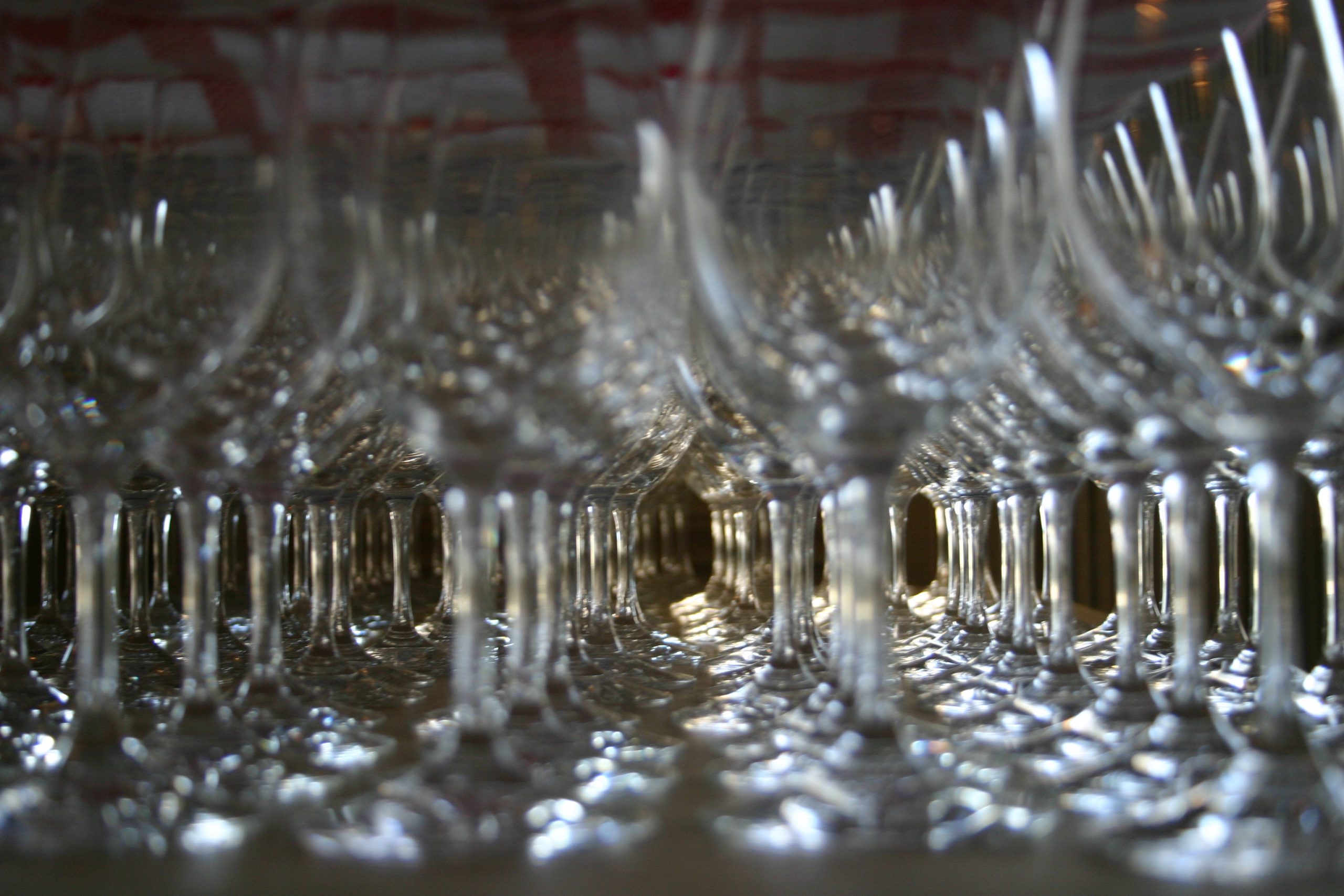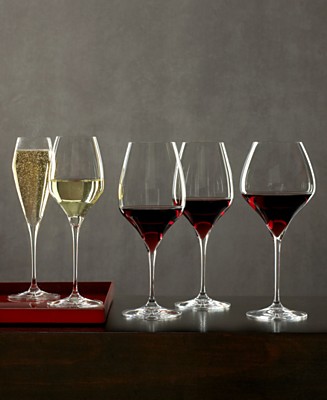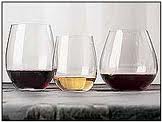(Robert Whitley’s Creators Syndicate Wine Talk column for this week.)
It started after I posted an innocent comment on my Facebook page about my new Riedel wine glasses.
I had just taken delivery of 1,000 Riedel Ouverture red wine glasses to replenish inventory for the multiple wine competitions we stage throughout the year in San Diego. I chose the Ouverture red wine glass a number of years ago because of its versatility.
 All types of wine — red, white, sparkling and dessert — are judged from this glass, which is short, with a generous girth and a narrow mouth. It has served us well. My colleague, Bob Foster, who also has run a fair number of wine competitions in his day, commented: "I like that glass. But I think the idea that each grape needs its own shape is the greatest wine scam of our era."
All types of wine — red, white, sparkling and dessert — are judged from this glass, which is short, with a generous girth and a narrow mouth. It has served us well. My colleague, Bob Foster, who also has run a fair number of wine competitions in his day, commented: "I like that glass. But I think the idea that each grape needs its own shape is the greatest wine scam of our era."
Riedel, of course, is the Austrian glass manufacturer that dominates the world of stemware for wine. A number of years ago, Georg Riedel began promoting the idea of one style of stemware for red Burgundy, another for Bordeaux and yet another for Chardonnay. Now there are glasses for Syrah, Riesling, Chianti, Barolo, Sauvignon Blanc, et al — you name it Riedel makes a glass for it.
I conceded in an ensuing comment that the Riedel glass-for-grape program is a marketing gimmick. Perhaps, that was a poor characterization because a "friend" named Ron, from Houston, quickly added to the comments with this: "I disagree. To each grape, its own glass. It does make a difference in the overall ranking of a wine. Try enjoying a great red Bordeaux in a paper cup. Then try it in a Chardonnay Riedel glass followed by the proper glass. Each is a totally different experience."
I can’t deny Ron’s contention that a Bordeaux tasted in such a sequence would deliver a different tasting experience each time. That is precisely the reason all of the wines at any commercial wine competition are judged from the same glass. That’s the one common denominator that levels the playing field and gives each wine an equal opportunity based on nothing other than its merits.
But if Ron is right, does that mean we can’t properly enjoy the wines we purchase unless we have a special glass for each one?
 Foster responded: "Originally, Riedel claimed the shape was designed to put the wine onto the point in the tongue where the taste buds were located for that wine’s flavors. But since they now know the taste buds are all over the tongue, the ‘science’ behind the glasses is totally gone. It IS a marketing gimmick."
Foster responded: "Originally, Riedel claimed the shape was designed to put the wine onto the point in the tongue where the taste buds were located for that wine’s flavors. But since they now know the taste buds are all over the tongue, the ‘science’ behind the glasses is totally gone. It IS a marketing gimmick."
My friend George Skorka, a sommelier from Los Angeles, chimed in: "But shape makes a difference. So … chill."
It was an interesting but dizzying debate, for I agreed with parts of everyone’s argument. So I had to ask myself how I would advise a wine enthusiast to proceed so as to arrive at a good outcome with a stemware purchase. No doubt the glass is important, particularly the shape. I love the Riedel glass-for-grape program, but I still contend its marketing 101 and a luxury most of us can’t afford.
What’s important to me about the shape of the glass is how well it aerates the wine I am about to drink. A Champagne flute might be the ultimate in style and elegance, but a complex vintage Champagne delivers greater pleasure if it is served in a glass with a generous bowl so it can be swirled and get air.
A tight, tannic young red wine needs a glass with plenty of room so the wine will have more surface to air contact, which helps soften the tannins and elevate aromas.
Do not drink young Bordeaux from a paper cup, please. Ron was right about that.
He was flat wrong, however, that each grape variety needs its own specially designed Riedel glass to be properly enjoyed.
 I concluded my Facebook posting with this comment: "The concept of a different glass for each grape is a gimmick because it isn’t practical. A consumer needs one or two shapes in a glass and that’s certainly sufficient. To tell consumers they must drink Syrah from a Syrah glass instead of a Bordeaux glass or they’re somehow missing something or doing an injustice to the wine is to overcomplicate the entire wine-drinking experience."
I concluded my Facebook posting with this comment: "The concept of a different glass for each grape is a gimmick because it isn’t practical. A consumer needs one or two shapes in a glass and that’s certainly sufficient. To tell consumers they must drink Syrah from a Syrah glass instead of a Bordeaux glass or they’re somehow missing something or doing an injustice to the wine is to overcomplicate the entire wine-drinking experience."
I will stand by that final observation. The glass you choose is important and should enhance the wine experience, so buy a really good glass. But don’t overthink it, or you will go broke.
To find out more about Robert Whitley and read features by other Creators Syndicate writers and cartoonists, visit the Creators Syndicate website at www.creators.com.
8
